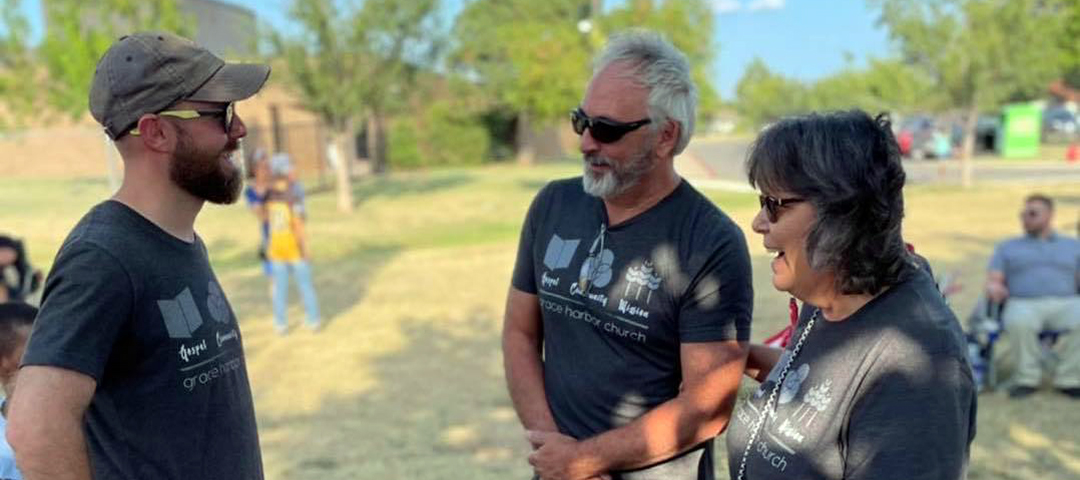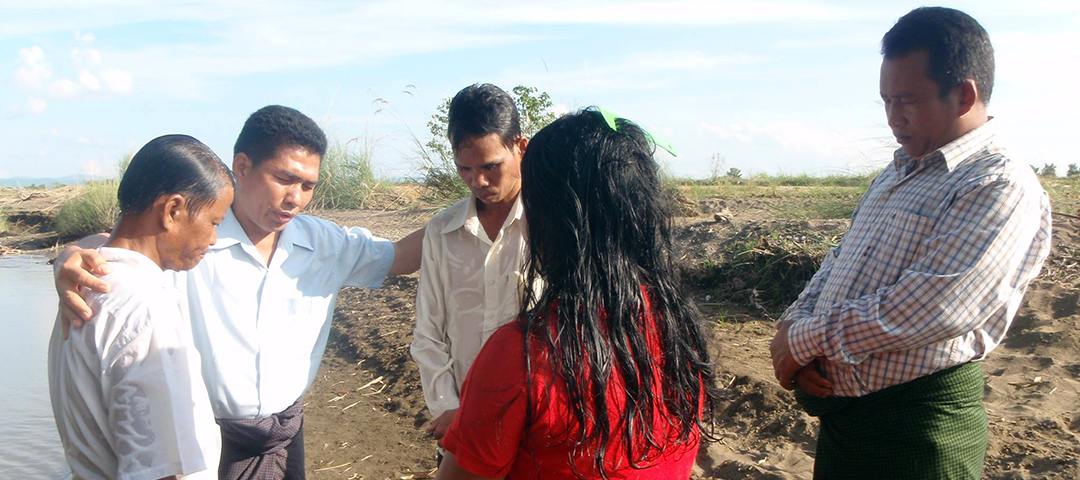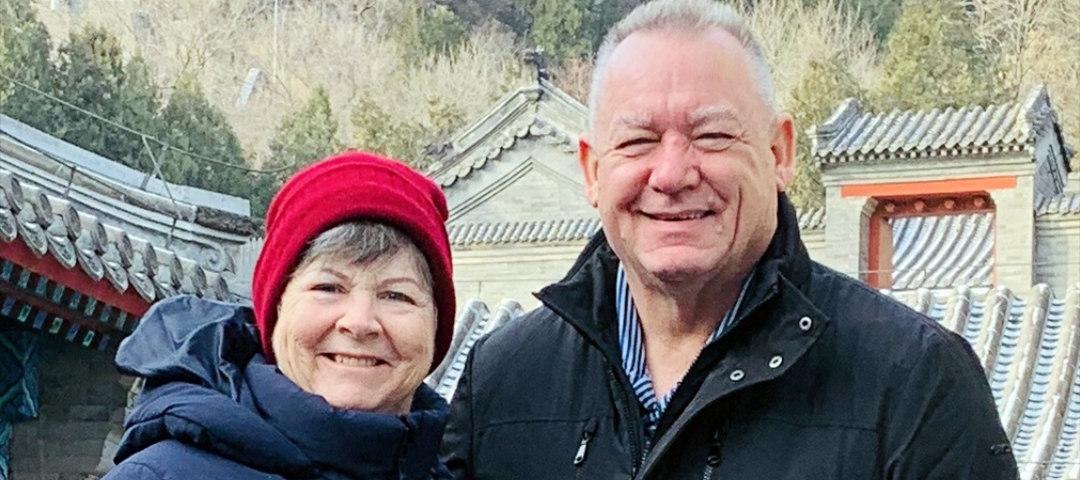
Ordinary Faithfulness in Church Planting
March 28, 2023
Overcoming Opposition in Myanmar
April 11, 2023By Stan Scroggins, Asia-Pacific Regional Coordinator
Missionaries are an independent breed. It just goes with the territory. However, living in cross-cultural settings, often with no familiar personalities to interact with and having to make all decisions on your own, can lead to the mistake of becoming detached and sequestered. Of course there are biblical teachings that show us how to avoid these missteps.
A recent article entitled “Why Did Jesus Send Out His Disciples Two by Two” by Mark Roberts gives a wonderful example of why Christ employed the strategy of shared ministry. “Calling the Twelve to him, he began to send them out two by two and gave them authority over impure spirits” (Mark 6:7). Shared ministry can be identified in many ways. Married couples, missionary collaborators, team sending, accountability partners, and mentorships are practices by modern missionaries to prevent seclusion and isolation that often leads to missionary burnout.
When Donna and I arrived in the Philippines almost seven years ago, we benefited from the work of many missionaries who had gone before us. Each left his or her own individual legacies and we quickly picked up on those we would benefit from most. Things like an established local, regional, and national association structure and mission planting embedded into the DNA of every local church. Donna and I have certainly had a “shared” missionary strategy. We’ve worked side by side, complementing each other in our particular areas of God-led ministries. Serving with BMAA missionaries Doug and Diane Lee also inoculated us against the infectious “rogue missionary” virus, which plagues many missionaries. We’ve discovered that partnering with Filipinos, helping them with tools and not getting in their way, has been the most fulfilling of our Lord’s shared ministry formula.
Establishing an exit strategy is important for shared ministry to be successful. Without one, missionaries invariably assure ultimate mission failure. Having an exit strategy was certainly one of the foremost topics in our early pre-field preparations. I remember then International Missions Director Phil Knott saying, “The most beneficial thing you can do is to know your exit strategy now, before you arrive on the field.”
We knew our term on the mission field would be short compared to those “lifers” like Doyle and Linda Moore, Ray and Faye Freeman, and Don and Linda Newsom. So maybe for us it was easy to go in already thinking of our exit strategy, knowing we had a short seven-year window. But modern missiologists now coach missionaries to plan everything they do with an exit strategy in mind, even twenty, thirty or forty years down the line.
In Christian mission if you don’t have a plan you can be sure the devil does. No missionary would ever desire that their life’s work for Christ would end with their departure. Here is a story I once heard about a park ranger whose job it was to clean up camp sites after the campers left:
Bill, why don’t you follow me around today and let me show you the ropes? “Sure thing,” he answered. Bill observed the seasoned ranger’s attention to cleaning the grills, removing charred wood from campfires and raking leaves and trash from every used site. Coming up on one site, obviously not used, Bill expected to keep walking on to the next location. With no trash to pick up and no ashes to clean out, the older ranger proceeded to take out his rake and scrape across the dirt of the camp site. “What’s all the fuss?” Bill asked as he continued, “This place wasn’t even used.” “Well Bill, people just like to know someone’s been here by seeing the rake marks in the dirt.”
That is what our exit strategy has been about, preparing our field, or camp site, so that those who follow can pick up where we left off and advance the cause of Christ for the next generation. How did we do it?
Church planting is the best exit strategy. While we’ve been here we’ve partnered with many of our local churches, helping with their local church planting. We are so glad to have partnered with the following churches:
- Karis Baptist Church in E.B. Magalona and their missionary in Mandalag
- Dos Hermanas Baptist Church, Missionary Kevin Berayo, and his three missions in the mountains of Ahgu
- New Testament Baptist Church in Sullivan, Missouri, along with New Testament Baptist Mission and Missionary J.R. Suico in Tigbawan, Leyte
- Ati Baptist Tribal Church and Pastor Roter Sinceda
- First Missionary Baptist Church in Talisay and now daughter church in Badiang with Pastor Ezra Leyson
- Miranda Grace Baptist Church and its new mission in Mandalagan with Missionary Pastor David Perez
- Kusol Mission in Hinigaran and Pastor Loreto Lopez
We didn’t have to come and reinvent the wheel. We found some “rake marks,” recognized someone had plowed before us, and picked up the rake to scrape out some new streaks.
Being part of the teaching ministry of the Baptist Missionary Association Bible College is an example of using our exit strategy to prepare this invaluable institution to continue to train future missionaries, pastors, and teachers of the Philippines and even the entire Asia Pacific region. Achieving accreditation for the college, refurbishing and even rebuilding well-used facilities, and partnering with the Baptist Missionary Association Theological Seminary in America to upgrade our teachers’ credentials with masters degrees has all been part of securing the legacy this institution has meant to the Lord’s work here for many years to come. An exit strategy we developed, even before leaving for the field, was a plan to secure the Bible College’s financial future. The Darlene Carey Christian Academy is part of that plan. The academy, in just a few years, will be in a position to provide at least a third of the Bible College’s budget and will certainly be a huge part in the Christian education of thousands of Filipino children.
Finally, our shared ministry will be part of our exit strategy too. Even though we no longer will be living in the Philippines, for the rest of our lives Donna and I will be working to promote missions and always with a focus on the work God called us to and the people God gave us a love for. Third John 1:4 will be our clarion call: “I have no greater joy than to hear that my children walk in truth.” And maybe, prayerfully, someone will come after us and find our “rake marks” left behind.

